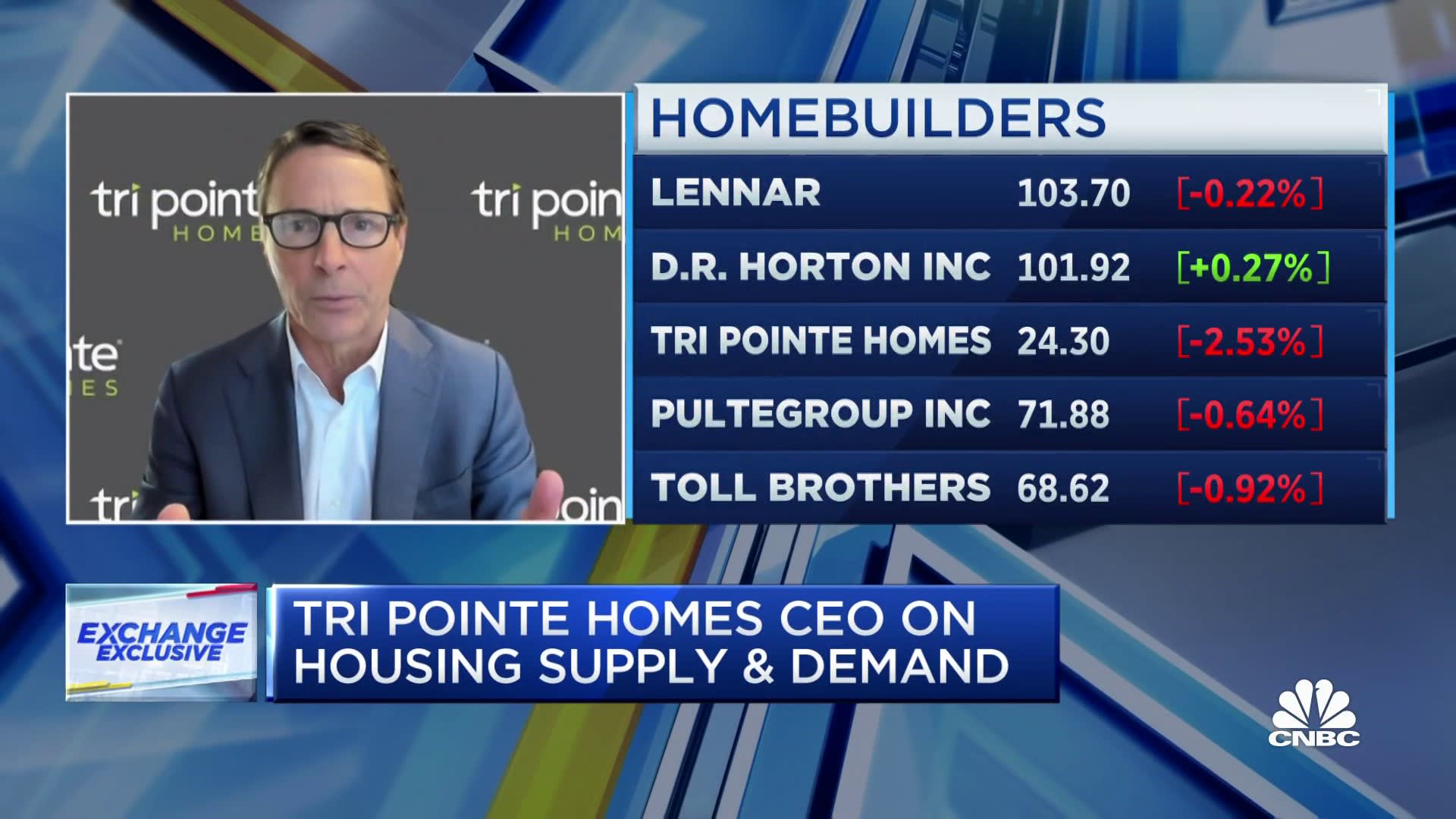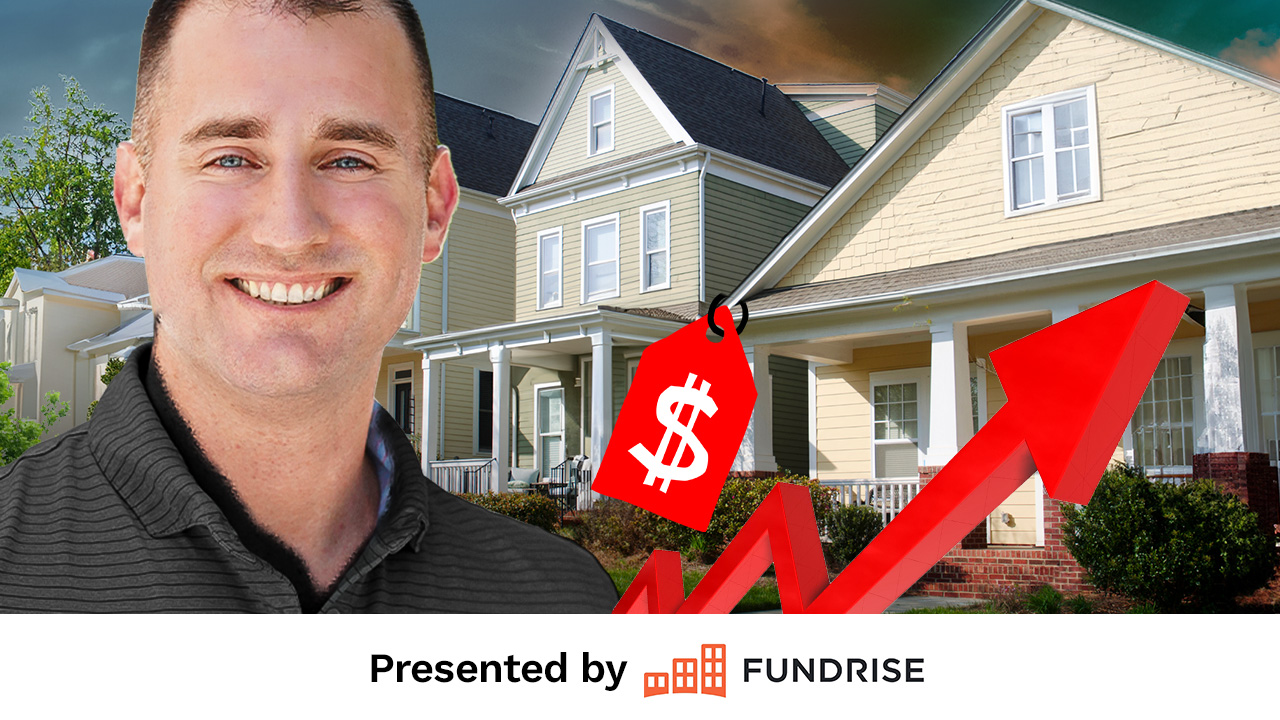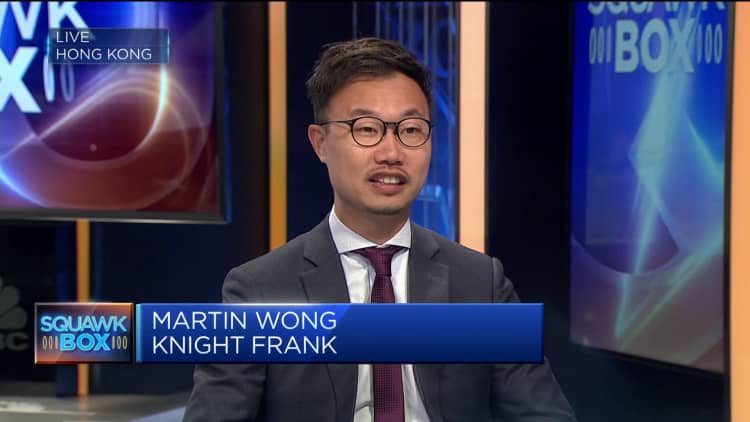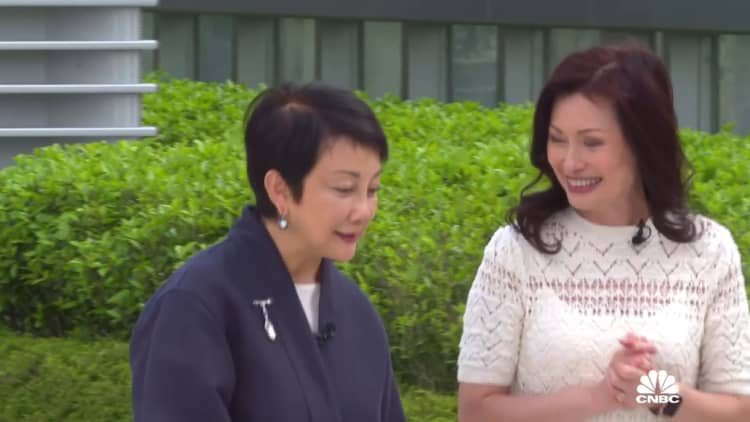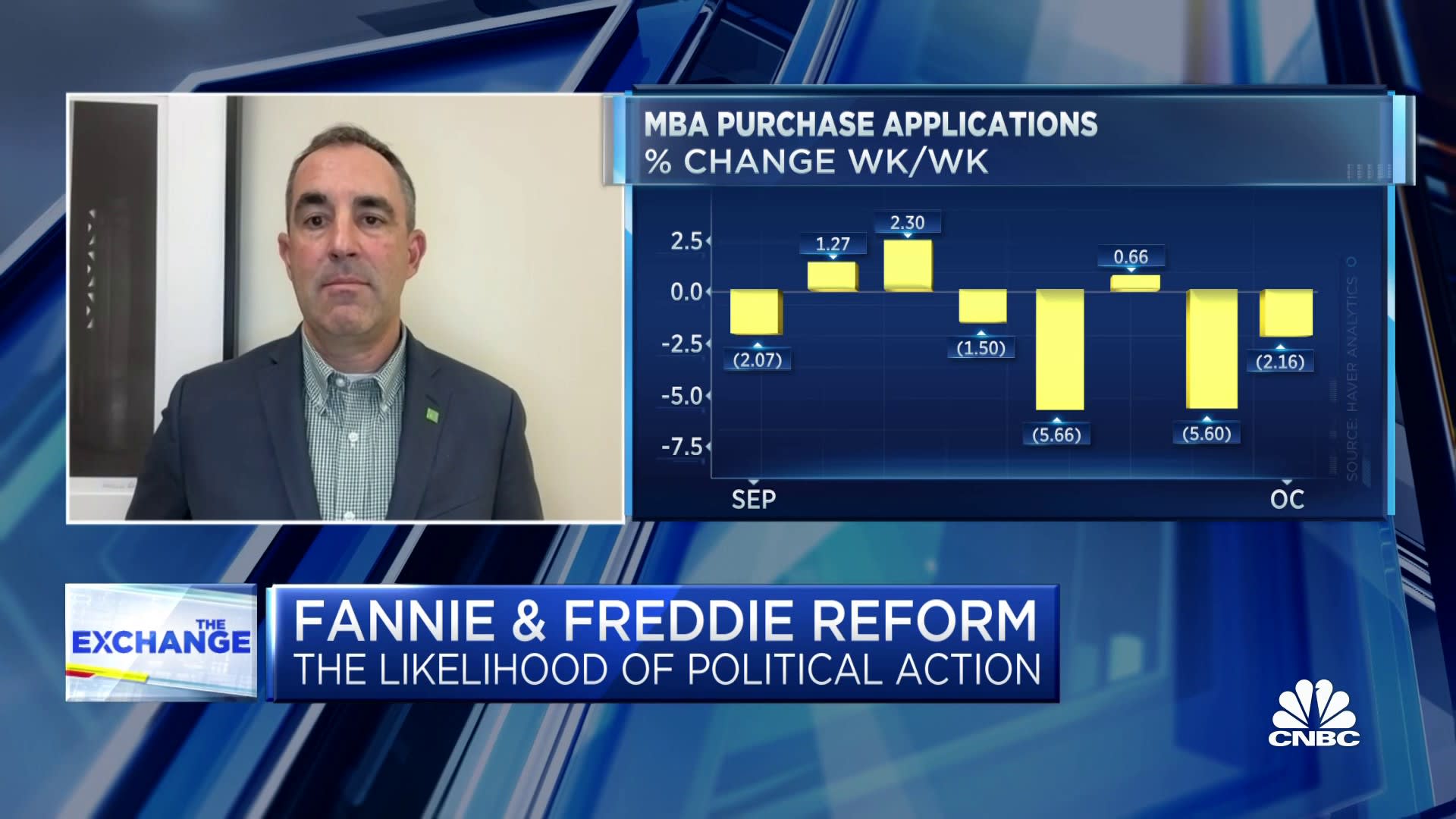Non-Renewal Notices, Rental Arbitrage, and Hard Money 101
If a potential tenant approaches you about Airbnb rental arbitrage, you may wonder if there’s a catch. Are you responsible for damages? What if you encounter a noisy guest? As a landlord, there are all kinds of pros and cons you need to consider before letting someone else lease out your home. But, not to worry—our hosts are here to spell them out!
Welcome back to the Real Estate Rookie podcast! In this episode, Ashley and Tony deliver some critical advice to landlords. In addition to rental arbitrage, they discuss non-renewal notices—when and how to deliver them! For first-time investors, they also provide a step-by-step process for creating an offer letter. What’s more, they break down the biggest differences between hard money loans and construction loans and which one is the better option for a BRRRR (buy, rehab, rent, refinance, repeat). Finally, they touch on structuring partnerships and all of the details you MUST flesh out before making one official!
Ashley:
This is Real Estate Rookie, episode 334.
Tony:
I guess we can just go pros and cons for allowing someone to arbitrage your unit. You ideally could potentially charge slightly higher than market rents. If you’ve got a bigger multifamily property, you could lease out multiple units at one time to one person. The third benefit, and this is counterintuitive, they’ll probably end up being your best tenants, because they’re going to handle a lot of the minor maintenance issues on their own if they’re a good host, because they’re going to want to make sure that it’s ready for that guest.
Ashley:
My name is Ashley Kehr, and I’m here with my co-host Tony J. Robinson.
Tony:
And welcome to the Real Estate Rookie Podcast, where every week, twice a week, we bring you the inspiration, motivation, and stories you need to hear to kickstart your investing journey. And today, we’re back with another rookie reply, answering questions from you, our rookie audience. And look, if you would like your question featured in one of our episodes, head over to biggerpockets.com/reply, and we just might choose your question for one of our shows. But today, we got a long list of stuff that we’re going over. We talk a little bit about rental arbitrage at the end of the show. What is it? When is it beneficial for the landlord and for the person doing arbitrage? We talk a little bit about how to structure partnerships, and if you guys haven’t yet, head over to biggerpockets.com/partnerships to pick up mine and Ashley’s book about partnerships where we cover on how to structure a partnership, what to look out for, mistakes that rookies make when they’re doing that kind of thing.
Ashley:
And if you have checked out our book and given it a read, we would love to hear from you if you could leave us a review at biggerpockets.com or if you ordered it on Amazon or Barnes and Noble, if you could leave a review there, too. Well, you guys, we have run out of reviews. That means we need you to leave a review, an honest rating and review of the podcast, so that we can feature you. And please share any lessons you’ve learned, any wins you have had from this podcast, listening to these amazing guests, and we would love to give you a shout-out. But before we get into today’s show, Tony, I need to have a little boring banter with you. So by the time this airs, you’ll be holding a little baby girl in your arms, so just fill us in real quick: what’s going on in the Robinson household to prepare for baby?
Tony:
That’s a good question. Sarah’s pretty proactive, so she’s been prepping leading up to this. We cleaned out the garage last month to make room for all the stuff that we were going to get for the baby shower. We had a closet downstairs, the closet you have underneath your stairs, it was just a junk place. Now it’s all the baby stuff. We just finished the nursery, I think last weekend, so we’re pretty much ready. I think the only thing that’s missing right now is diapers. For whatever reason, we didn’t get any diapers at the baby shower, so we got to get diapers and wipes. But everything else, we’ve got. We’ve got literally everything that we need, so we’re just waiting right now for baby girl to get here.
Ashley:
It’s funny because when I came to visit you guys in August, in the morning, I got up and made myself breakfast and I went, I don’t know where anything is in your kitchen, so I’m just going through random cupboards and I opened up this big cabinet and it’s just a piece of paper that says baby stuff, just like the whole cabinet is saved for baby stuff.
Tony:
And now it’s filled up. We got stuff in there now. We got a lot of cool little trinkets and stuff, and one of the ones that was pretty cool is that it’s like a Keurig, but for baby formula, so you just fill up the reservoir with water, and then there’s a big thing at the top for the powder, and then it’s literally wifi enabled, so say that we wake up in the middle of the night, we need to make a bottle, you hit a little button on the app, it mixes everything and gets it to the perfect temperature for the baby. We got a lot of cool little gadgets like that.
Ashley:
That is cool.
Tony:
Because I had my son, he’ll be 16 shortly, so that was almost two decades ago that we had him, and so much has changed.
Ashley:
Did they even have Keurigs then?
Tony:
They didn’t even have Keurigs. It has been cool to go on that journey, but we’re excited. We’re super excited.
Ashley:
Well, thank you for sharing that with us. Everybody I’m sure is excited for a little podcast baby to come and make an appearance sometime on the show. Okay, let’s get into our rookie reply questions on this amazing Saturday. By the time this airs, I’ll actually be spending every Saturday at peewee football games, but Tony, maybe it will be beautiful for you, and California probably be cold and windy and rainy at football games, but I hope everyone is having an amazing Saturday so far.
Tony:
Yeah, there’s also a good chance that I might be holding a brand new baby girl in my arm, so we’ll see, depending on how close. Actually, no, I’ll definitely be, because this is coming out the end of October, so baby Robinson will be here by then for sure.
Ashley:
Yes, I’m so excited. I can’t wait. Okay, so our first question is from Steven Cobb. “Hey everyone, I’m about to try to make an offer on the house, but the property is on market, so I’m talking with the agent. When I make the offer, is there any official document that I need to submit, or do I just give them the price I want to offer?” Great question, Steven. And there are differences between submitting an offer to somebody on market and off market. On market is when the property is listed on the MLS, and there is a real estate agent that is handling the transaction. Tony, you can tell me if you read it differently, but I’m thinking that he went to the agent that is listing the property?
Tony:
Mm-hmm.
Ashley:
That he doesn’t have his own agent, which is completely fine. A lot of agents who will do that, it’s considered being a dual agent where they will represent you and the seller. In this circumstance, or if you go and get your own agent, there is no official document that you actually need to present or make up. The agent will do the whole contract for you. And that is one reason I love using a real estate agent, is because they do all of the paperwork for you, and you don’t have to. Tony, you want to go through a list of things that when you’re talking to your agent, I’m talking to my agent, what are some of the things we have to tell them when we’re making an offer? It’s not just the price you want to offer, there’s other things that go into the offer that needs to be considered.
What your agent would tell you this, or any agent will say, “This is the additional information I need,” but just so you’re prepared that you can have it. The first thing is what name do you want the contract in? Are you putting in your personal name? Are you going to put the property in an LLC? You can also put an LLC or a name and do and/or assigned to. This way, you have the ability to change the contract before you actually close on the property. When I purchase a property, I always put them into the same development company.
And then I’m like, “Okay, here’s my business partners, which one’s going to be a great fit? Okay, great, it’s going to be Joe this time for this property. I’m going to put it into our LLC that we have.” And then, by the time it’s ready to close on the property, we make the change to the contract that it’s maker. But this is also how wholesalers can do it too, where they can assign the contract to somebody else. That’s the first thing. Start writing a list down you guys. The first thing is the name. The contract is going to go in. Tony, what would be your second thing?
Tony:
Yeah, I think the second thing, and the one that’s always important for me is your due diligence period. And due diligence is your opportunity as the buyer to really open up the hood of this property, go under the hood for this property, and make sure that as it appears on the outside is how it appears on the inside as well. This is when you’re doing your general property inspection, maybe you’re doing a septic inspection, maybe you’re scoping the sewer lines, you’re having electrical bids created and plumbing bids created. But basically, this is where you really get to sharpen the pencil on all of your initial expenses that you projected associated with that property. And the due diligence period is important because typically during your due diligence, if you find something of concern, say that maybe you assumed that the roof is in good condition, but after the inspection was completed and having a roofing contractor go out, turns out the entire roof needs to be replaced.
That’s a relatively big expense. So you can then go back to the cellar during your due diligence and say, “Hey, I would like to get a reduction of $5,000 to help cover the cost of getting this roof repaired or replaced.” And then you and the seller can negotiate. If the seller says no, as long as you cancel your purchase agreement during your due diligence phase, you typically can get your earnest money deposit refunded back to you. If you were to try and cancel outside of your due diligence period, and maybe there weren’t some other contingencies, you might lose that EMD. I like to typically focus on the due diligence period. A shorter due diligence, it’s typically more, I think, attractive to a seller than a longer due diligence. And I’d say for most of our properties right now, especially if it’s a flip or something we’re going up, 14 days of due diligence is pretty typical for us, but that’d be the second one for me, Ashley, is due diligence.
Ashley:
Okay, well, that was the wrong answer because we were still on the first page of the contract and you skipped to the second page of the contract. The correct answer for the second thing was the address, so the address you want to put on the contract, and this is where your property taxes would be sent to. This is the address the county will have on record as far as the mailing address for this LLC and for the property where you’ll get your property taxes. And then to tag along with that is the email address, because most agents use electronic signature, so they’ll need your email where they can send the final contract to get signed by you electronically.
Then moving to page two, definitely agree, the due diligence, super important. Are you going to have that inspection period? For how long do you need to have that due diligence? Then the next thing would be your purchase price. How much are you going to pay for the property? And then to coincide with that as to how you are paying for the property. Are you going to be paying cash? Are you going to be getting a bank loan? Is it going to be an FHA loan? The loan type you are getting is important in the offer, too, because that will definitely play into someone’s consideration for your offer.
FHA loans are harder to get in a sense, because there’s more hoops to jump through. You have to do an FHA loan inspection, which is separate from your inspection that you’re getting during your due diligence period compared to a conventional loan where the loan company, the mortgage company, isn’t doing any of their own inspection. If you’re looking at two offers, yours with the FHA loan seems a little more risky because what if we go this far and then they say, “No, sorry, FHA loan, we actually won’t cover this property. It doesn’t meet our inspection criteria.” Then the contract falls out, and now these people have to start all over. The next thing after the due diligence would be what your price is and how you’re going to pay for it, and then that ties into a contingency. You can put a contingency in there that if you do not get bank financing and you don’t get your bank commitment letter by x date, then you can actually back out of the contract.
Tony:
There’s tons of different contingencies you can add to your purchase agreement, Steven. I think the piece that’s important is that you don’t want to overdo it. You really just want to try and focus on the contingencies that are most important to you, so yeah, the due diligence, the financing contingency is a big one. We’re doing stuff, we just signed a purchase agreement on a hotel, and one of the things that we had was the environmental study. And actually I learned this from you, Ashley, like, hey, we want to make sure that this thing passes a phase one environmental. And part of our due diligence, but we called it out separately, so there’s tons of things that you can include from a contingency standpoint. But just know the more you have, the less attractive your offer gets. But we talked price, we talked owner information, we talked due diligence and contingencies. I’m trying to think if there’s anything else that I typically include in a purchase agreement. Anything that you’d add that we haven’t chatted on yet?
Ashley:
The only thing I would add is a closing date, that we’ll close in 30 days, so that would be the last thing that I would add. What I usually do is I write out an email to the agent, or I send this in a text sometimes, too, and I will literally just list out this information: name, address, email, inspection, due diligence period, price, how you’re paying, and then closing date, or how many days until closing. It’s just an itemized list I go through and I’ll fill out that out and send it right over, and that’s usually enough information to have all that filled out. And then if there’s any other contingencies you want in there, too. For example, maybe you’re selling your primary residence or another investment property, and saying you’re only going to be able to close on this property if your other property sells, too.
Tony:
The closing date is super important. I was actually trying to look at the last flip that we bought earlier this year. But yeah, typically, a shorter closing window is more attractive to a seller than a longer closing window. Like Ashley said, 30 days is a pretty common escrow period on a single family or small multifamily type residence. Longer escrow periods typically if you’re going into bigger commercial properties. But what we will do on a lot of our flips is we’ll go no financing contingency, because we’re typically raising private money or we’ve already got the money raised in a lot of scenarios, and then we’ll do a 21-day closing.
We’ll have 14 days to get our inspections and our due diligence completed. Then it’s just another seven days to finish off all the paperwork with our private moneylenders, and typically, we’re able to close within three weeks. For us, we’ve got a pretty strong offer because there’s a tighter window, no financing contingency, no other crazy contingencies as well, and it allows our offers to stand out. And I’m pretty sure on this deal, we weren’t the highest offer, but they liked our terms a little bit better than some of the other offers they got.
Ashley:
Yeah, I think that’s a great point. All these other contingencies and terms that you’re putting into your contract can actually make a difference more than price. And that’s why if you have the chance to find out why that person is selling their property can actually help you tailor your offer to that. Okay, so our next question is from Carrie Adams. “Any recommendations on how to structure a partnership for long-term buy and hold?” Cue Tony.
Tony:
I don’t have my book.
Ashley:
You don’t have your book?
Tony:
Where’s my book? I put it up here.
Ashley:
Hold on. I got one.
Tony:
All right, so Ashley’s so excited right now that she just ran into her microphone.
Ashley:
I just spun around and hit my own head.
Tony:
All right, you do the honors today, Ash. I’ll hold the book up, but you do the audience.
Ashley:
Okay, well, I wheeled over to get my book in my chair, so I got mine too. But anytime we hear the word partnership, we are your go-to people, because we wrote the book Real Estate Partnerships. You can find it on the BiggerPockets bookstore. You can go to biggerpockets.com/partnerships, and if you use the code Ashley or Tony, you can actually get a little discount, too. Now that I’m all frazzled from running to my desk, in this question it says, “I have great credit, and my potential partner has more cashflow.” So they’re both bringing value into the partnership. As in cashflow, this is meaning they have actual capital, they have cash to put into the property. They’re willing to go half on the down payment, but the mortgage would be in my name. Tony, I think this is the perfect question for you, because this sounds very similar to how you set up your joint venture agreements.
Tony:
I’s a great question, Carrie, and I think there’s a little bit more to unpack here because I would want to know outside of just how were you structuring the purchase, because what you’ve defined in your question is the purchase, is who’s going to carry the mortgage, which is an important question, and how are we going to cover the down payment and closing costs, which is another important question. But what I would ask next is, how are you going to divide the responsibilities of actually owning and managing this real estate investment? Is one of you going to be the person that’s going to handle everything, while the other person is more of a silent partner? Are you going to split responsibilities down the middle? Is one person going to do 70%, the other person going to do 80%? I think the long-term management of this investment is a critically important thing to consider as you’re putting the initial structure together.
Because assuming all things being equal, how you have it set up right now, one person’s bringing the capital, one person’s bringing the mortgage, that’s a pretty equal thing here, right? Because the ability to get approved for a loan is incredibly important. Better rates, maybe a lower down payment percentage, but you still need the capital to actually close on that deal. But say that you, Carrie, were the person that was going to manage everything, and this other person was literally just bringing the capital, it might make more sense for you to actually have more ownership in the property, because you’re getting the mortgage and you’re doing the management, or maybe you charge the property management fee. There’s a lot of different levers here, but it’s hard to really give a super concrete answer without knowing what the asset management’s going to look like. What are your thoughts, Ash?
Ashley:
Yeah, I would say one thing in here is I think that Carrie should get more equity than the other person is because she’s taking on the debt and she’s giving half the down payment. She’s giving up more for this property, she’s increasing her debt to income ratio, and she’s putting in cash. I would take that, and whatever you’re working out the percentage to be that I think Carrie has more value in this partnership, because she is taking on the debt and giving half of the down payment. Now, if that were to change and flip-flop, and maybe the one person was putting in cash and then just the whole down payment amount, and then for Carrie to get the debt in their name. There’s definitely different variables, but I also think, too, is what is the outcome of this partnership? And I think one thing to be very cautious of when you are structuring this is do what Doni does in his joint venture agreements: do a five-year exit strategy.
In five years, you’re evaluating if you want to keep the property, or if one person wants to sell, you sell it. Having those exit strategies in place, very key when setting up your structure for this. And I think a joint venture agreement is the way to go, because if you are going to… Or you could do an LLC on this, you’ll just have to go and get the financing in the LLC, which then you wouldn’t be bringing as much of a value to the partnership, because the debt would actually be in the LLCs name and not in your name, and the interest rate and the terms wouldn’t be as great, either.
Tony:
But there’s so many different ways to structure it, Carrie. I think what’s most important is that the two of you sit down and really identify, we’ve got the acquisition piece hammered out, but what does the long-term management of this buy and hold look like? Who’s going to be playing what roles? And then do your best to assign either equity, or fixed hourly payments, or percentage of the revenue as a management fee for those duties and responsibilities of actually managing the property? I think it’s a common mistake that a lot of rookies make is that they overvalue the acquisition side, and they undervalue the long-term asset management. The acquisition, it’s a one-time event, right? You’re going to buy the property one time. But the asset management, that goes on for as long as the two of you own that property together, which could be a year, could be five years, could be 30 years, could be forever. You just want to make sure that you’re keeping that in perspective as you structure this partnership.
Ashley:
Okay. The next question is about hard money loans versus construction loans by Rhett Miller. He wants to know, “What are the best ones to use for a BRRRR: a hard money loan or a construction loan? Pros, cons. I’m looking at two lenders and one suggested a construction loan. I was just wondering what your thoughts were. Thanks in advance.” Okay, so the only construction loan I’ve used is actually to build my primary residence, so that was just ground up construction. Have you used a construction loan, Tony?
Tony:
Yeah, I have. I’ve used it twice for some of the properties that I had in Louisiana, my first few long-term rentals out there. But I think it might even be beneficial just from my own understanding to at least break down some of the differences here. Hard money versus construction loan: typically a hard money lender is a company of business that specializes in funding rehab projects for real estate investors. And usually you’ll see higher interest rates than a usual investment property loan. Additionally, there’s points like additional fees you have to pay upfront to use that debt as well. But a hard money lender’s bread and butter customer is the real estate investor.
At least for the construction loans that I’ve used and the ones that I’ve seen, you can get those from a more traditional bank. I got both of mine from a local credit union in the market that I was investing in. Even big banks like Bank of America has a construction loan. Typically, those are going to be for your primary residences, but you can get a construction loan from a local bank or credit union, not just a hard money lender.
I’ll explain how my construction loan worked, and I’ve actually never used hard money because I’ve always gone the private money route, but I’ll explain how the construction loan worked. The way that this specific credit union had it set up, I had to go out and find a property. Once I found the property, they would do… Basically, I would submit my identified scope of work. Say “Hey, here’s the work that I plan to do on this property.” They would then take that scope of work along with the current condition of the property, and they would basically do a future appraisal where they would say, “Hey, based on the scope of work and the current condition of the property, here’s what we think this property will appraise for after your work is done.” And as long as I was below a certain percentage, I think it had to be like 72% of the after repair value, they would lend me all the money for the construction and the purchase.
Basically, I had a one-year construction loan with them. It was an interest only loan, it was a great loan product. I think at the time interest rates were at a little over three, maybe, and I was paying 6% on the construction loan, so it was pretty good. Cheaper than if I would’ve gone out and gotten hard money at that time. I had a 12-month interest only construction loan. And what was great about the loan was that I was only being billed on the amount that I had drawn at the time. I bought the property for whatever, 70,000 bucks. Initially, it was only 6% on that 70,000. And then as my construction bill got larger, then the loan itself, the balance that I was being charged on got larger as well.
And then at the end of that 12 months, I was able to refinance with that bank into permanent long-term fixed debt. I went from the 6% construction loan down to, I don’t know, a 4% investment loan. That was a process for the construction loan. It’s all in house. They handle both the short-term debt and the long-term refinance, pretty much all under the same roof.
Ashley:
For this one, I think my answer at least would be using hard money versus the construction loan, just because in my experience with hard money, there is a lot less oversight compared to the construction loan. The construction loan, when actually I had to have a licensed contractor who was actually approved and verified by them, by the bank, where with hard money, they didn’t ask who was doing the work or anything like that. Not that I wouldn’t use somebody who wasn’t doing a good job. I think different hoops like that, the hard money was easier than doing the construction loan as far as having those hoops, and having so much information verified, and things like that. And for the draws with the hard money, it was a lot easier process to get the draws than it was for the construction loan, too.
Tony:
I guess the inverse of that, I actually found it super helpful, Ash, because I had this construction loan on my very first investment property ever, and I found a ton of value in actually having the bank send a representative to the rehab before they released a draw, because I was getting this confirmation. I was in California, the property was in Louisiana, several thousand miles away. I had my property manager, I’d already contracted the property manager, they would go and walk the property for me. I was FaceTiming with the GC once a week, he was giving me a walk through the property. But then I also had the representative from the credit union who would walk the construction to make sure that, okay, there’s progress being made before they release the draw. It was this security blanket for me to make sure that the rehab was moving the right way.
And then even on the acquisition side, I had this bank who knew the market way better than I did give me their estimate of the ARV. And so, I was super confident moving forward with it, because not only did my initial analysis make sense, not only did my realtor’s suggestion make sense, but then the bank who knows and has lended on tons of properties in that market, they also had this ARV that made a ton of sense. I think for a first time investor for a lot of our rookies, even though there are a few more hoops to jump through, it really can be a good set of training wheels on that first big rehab that you’re doing.
Ashley:
Yeah, that’s a great point as far as the training wheels, is someone holding your hand along the process, where with hard money, there definitely wasn’t that for me, at all. But that’s a great point. The one thing that I will challenge you on, I guess, with that is I did this YouTube video years ago with a hard money lender, and I said the same thing. “Wow, you send inspectors out? That’s actually really great. It’s like that second set of eyes on the property, somebody else who maybe has more construction knowledge.” And he looks at me and he goes, he’s like, “You know you’re paying a lot of money for those inspections, right? Those are baked into your loan fees. It’s not a free service.”
And he said, “If that is really why you want to do this type of loan product is for the inspections,” he said, “it is way cheaper to actually go and hire a third party inspector to come out and to actually do inspections like that for you, too.” I always think about that and how that was interesting. And sometimes you look at some type of service or product and you think like, oh wow, I love it because of this feature. Try to think more outside of the box, and if that’s the only feature you really need and why you’re finding value in this thing, is find a way to make that work for you without having to buy the whole process or system.
Tony:
Totally agree with that. I think I was in a unique position because this was a truly small credit union that had just a few branches in and around that local area, so it wasn’t expensive debt by any means. Like I said, I think there were no points. I didn’t pay any points upfront. The interest rate I’m pretty sure was 6%, and this was back in 2019, which was pretty good, so it seemed like a good one for me. I will say that the one downside was that I couldn’t use it to flip a home. I could only use it to BRRRR. And they made that very clear to me, like, “Hey, you can’t sell this property once the construction’s done. You have to refinance into permanent debt with us.” And then I think I had to hold it for at least like a year or something like that before I could sell it, so it was only for BRRRRing.
Ashley:
That’s actually another great point as the pros and cons versus hard money and a construction loan is what their refinance terms are. Especially when you’re doing a BRRRR like the question asked, the hard money lender that I had used on two BRRRRs, you had to refinance with them, but you had to have at least three properties you were going to refinance at a time, and they would only do almost a portfolio loan to refinance. I ended up pulling my properties off, and there was a 1% fee to actually not refinance with them.
And then also when I’ve done it with the bank, it was my primary residence or whatever, but we had to refinance with them once the construction loan was done. But I think really comparing what the refinance terms are, so not only the terms of the rehab process and that initial hard money and the construction loan, but also what happens when you refinance? Are you charged fees because you’re refinancing with someone else? What is the interest rate going to be? Can you lock in a rate? All those different things, look at that end scenario to the actual refinance piece, too. Okay, our next question is from Arbin Pale: “How much notice do you give to tenants that you’re not renewing the lease?” Tony, what’s your-
Tony:
I give them 24 hours notice. “You guys are leaving tomorrow at 10:00 AM, and if you don’t, I’m calling the sheriffs.”
Ashley:
This depends on your rental landlord laws in your state. I mentioned this actually our last rookie reply, we did episode three of 31 a couple of times, avail.co, or you go to your local housing authority website, or you Google your state and then tenant landlord laws. And usually, there’s some kind of handbook or guide available to you, free or really low-cost landlord classes you can take. Highly, highly recommend taking them. In New York state, you have to give notice depending on how long the person has lived at the property. If they’ve lived there for less than a year, they’re on a year lease and they have to live there over a year, you have to give 30 days’ notice that you’re not renewing their lease, or that you are renewing their lease. And if there’s a rent increase, it has to be that amount.
If it’s two years or less they’ve lived there, then it’s 60 days. And then anything over that is 90 days’ notice. Having to juggle this if you have multiple tenants, keeping track is very important as to how long they live there, as to when you actually have to do their lease renewal. Highly recommend setting some notification five days before that 30, 60, or 90 days, giving your time to write up their new lease agreement, their lease renewal, or that notice to let them know that you’ll not be renewing their lease. Check your state laws as to what that requirement is. I think the more notice you can give, the better. You just want to make sure that if you’re not renewing their lease, that they don’t retaliate by not paying rent for the next three months.
Tony:
I was going to ask that too, Ash. Say that you do issue a non-renewal notice, and let me just take a step back. So again, that property management company that I worked at for a very brief period of time, they also had it very clearly laid out inside of the original lease agreement what would constitute a non-renewal. For example, if you got X number of documented noise complaints that could lead to a non-renewal. If you had X number of late rent payments, that could lead to a non-renewal. So some things are super clear, where it’s like, hey, when your lease is up, you already knew that you weren’t going to get renewed. But say that it’s something maybe more severe where you’re issuing that notice. Have you ever had a tenant trash the place because they were angry, or just leave in the middle of the night? Or are most understanding, and they leave peacefully?
Ashley:
I actually can only think of one tenant that I’ve done a non-renewal with. And maybe when my properties were with the third party property management company, they did and they took care of things, so I was oblivious as to if someone was given a non-renewal or not. But before that, even when I property managed, I can’t think of anyone offhand unless it was like we said, we gave them their notice to cure or quit because they weren’t paying rent, for non-payment.
But as far as anything else, we did have one resident recently where right when we took over, her lease was up, we gave proper notice that we weren’t renewing it because of all the complaints. An old property management company had emailed us every time there was the issue, so we had record of it. It was issues with her dogs. And then she also was late all the time, and so we did a non-renewal with her. And she did try to say that she wanted to stay and things like that, and we just stuck to our guns, and she ended up moving out, and she actually moved in with somebody else at the apartment complex for a little bit. We heard from the neighbors or whatever, but apparently she’s found somewhere else now. But I can’t really think of any other times that we’ve done non-renewals for somebody.
Okay. Our last question today is from Chris Latt. And Tony, it is a question for you. “Airbnb arbitrage from the landlord’s perspective: what are the major disadvantages of this? I just listed my primary residence for rent, and I’ve already gotten inquiries about potential tenants that want to short-term rental the home when they are traveling, or they want to short-term rental a portion of the house. I added a private entrance to the master bedroom of my current house.” In this scenario, we have Chris who has somebody inquiring to be his long-term rental in the property, but while they’re traveling, going on vacation, doing whatever, they want to turn part of the house into a short-term rental to supplement what they’re not paying so they can go and travel. Tony, what is your take on this?
Tony:
Yeah, as the landlord, I guess we can just go pros and cons for allowing someone to arbitrage your unit. The pros are that you ideally could potentially charge slightly higher than market rents. If market rent is whatever, 1300 bucks, maybe you could charge this person, do an arbitrage, 1500. And it’s not uncommon, I think, to see that. The second benefit, and this is more so if you’ve got multifamily, but I know you’re talking single family, Chris, but I’ll talk to our multifamily folks as well. We took on our first arbitrage units from a buddy of mine that has a 12-unit apartment complex, and we took on not one, not two, but three of his units. He had three vacant units, he only had to go to one person, and I was able to lease all three of them from him.
If you’ve got maybe a bigger multifamily property, you could lease out multiple units at one time to one person. And I only signed one lease for all three, so all three are managed under one lease, so there’s less management, less overhead, et cetera, for that landlord. The third benefit, and this is counterintuitive, but the third benefit is that they’ll probably end up being your best tenants, because they’re going to handle a lot of the minor maintenance issues on their own. Because as a short-term rental host, if I’ve got the window between 10:00 AM when one guest checks out and 4:00 PM when the next guest checks in, if there’s a leaky toilet, or a handle gets broken, or something is wrong, I’m not going to wait on the landlord to come. I’m just going to fix it myself to make sure it’s ready for that next guest. A lot of those minor maintenance issues go away when you’re allowing someone to sublease if they’re a good host, because they’re going to want to make sure that it’s ready for that guest.
Those are some of the benefits. The disadvantages are potentially, you could have short-term rental guests that maybe bug your other residents. If you’ve got a single family house, it could be your neighbors. If you’ve got a multifamily, it could be the other folks that are inside of those units. But Chris, yours is a single-family home, so maybe you’ve got a little bit of space between your neighbors and your home, so it’s not as big of an issue. But if you’ve got people upstairs and downstairs, it becomes, I think, a bit of a harder thing to manage. And the other disadvantage is that God forbid, but you could have someone that there was a rager or something, and maybe they caused some extensive damage to the property, but I’d say that’s probably more of a rare occurrence than people actually understand. Honestly, I think there’s more pros than cons. But Ash, you’re the actual long-term landlord lady here, so what are your thoughts on this piece?
Ashley:
And I also arbitrage two apartments that I rent from somebody else. I’ll say, first of all, the first thing that came to mind is my short-term rental units, one of them, I was just trying to think, it’s been 2018 or 2019 I’ve had it, and that apartment to this day is nicer than people who have lived in an apartment at that same apartment complex for only a year. One huge benefit is it’s constantly being cleaned, and it’s always maintained and nice. That was the first thing I thought of is if these people are going to be renting it out as a short-term rental, they will most likely keep the house and the property very nice and clean, because they will want those five star reviews. They’ll want to get as much money as they can. That was my first thought as to that it may actually work out in your favor, and it’s not going to be a long-term tenant that’s just going to trash the place or not clean it and not take care of it because they’re going to be renting it out.
Another thing is, too, is that you’ll be able to look up the listing, and you’ll be able to read the reviews as to if they are taking care of the place, or if people are commenting and saying that the place is disgusting and blah, blah, blah, don’t stay here. The next thing, too, is I would check with your insurance agent as to how this would work for your insurance. Tony has short-term rental insurance on his properties. I have landlord insurance on my properties for my long-term rentals, so talk to your insurance agent and see how this would come into play. Do you need to have your long-term tenants get short-term rental coverage, so that way if somebody does throw a rager and do all this damage, or things happen to the property, that it’s actually your long-term tenants that are responsible to cover through their insurance all of the damages that were done at the property, and it’s not even anything to do with you?
And that actually would give me more peace of mind knowing that the long-term tenants have the insurance in place, so it’s them paying any deductible, and it’s their insurance premium increasing because they have a claim, and not you having a claim on your own homeowner’s insurance. Everything you touched on was great. Those are the only two things that I would add.
Tony:
Yeah, for the arbitrage units that we’re doing, we also have our own insurance in place as well, just to try and protect everyone. But yeah, honestly, I think it could be a win-win for you as the landlord, and for the folks that are renting it from you.
Ashley:
Well, thank you guys so much for listening this week. I’m Ashley at Wealth from Rentals, and he’s Tony at Tony J. Robinson. If you have a question, you can submit it at biggerpockets.com/reply, and you can also check out our new book, Real Estate Partnerships, at biggerpockets.com/partnerships. Thank you, and we will see you back here on Wednesday.
Help us reach new listeners on iTunes by leaving us a rating and review! It takes just 30 seconds and instructions can be found here. Thanks! We really appreciate it!
Interested in learning more about today’s sponsors or becoming a BiggerPockets partner yourself? Email [email protected].
Note By BiggerPockets: These are opinions written by the author and do not necessarily represent the opinions of BiggerPockets.
Non-Renewal Notices, Rental Arbitrage, and Hard Money 101 Read More »


